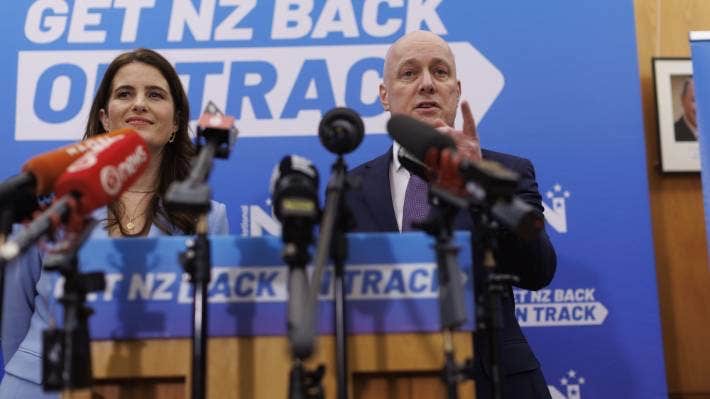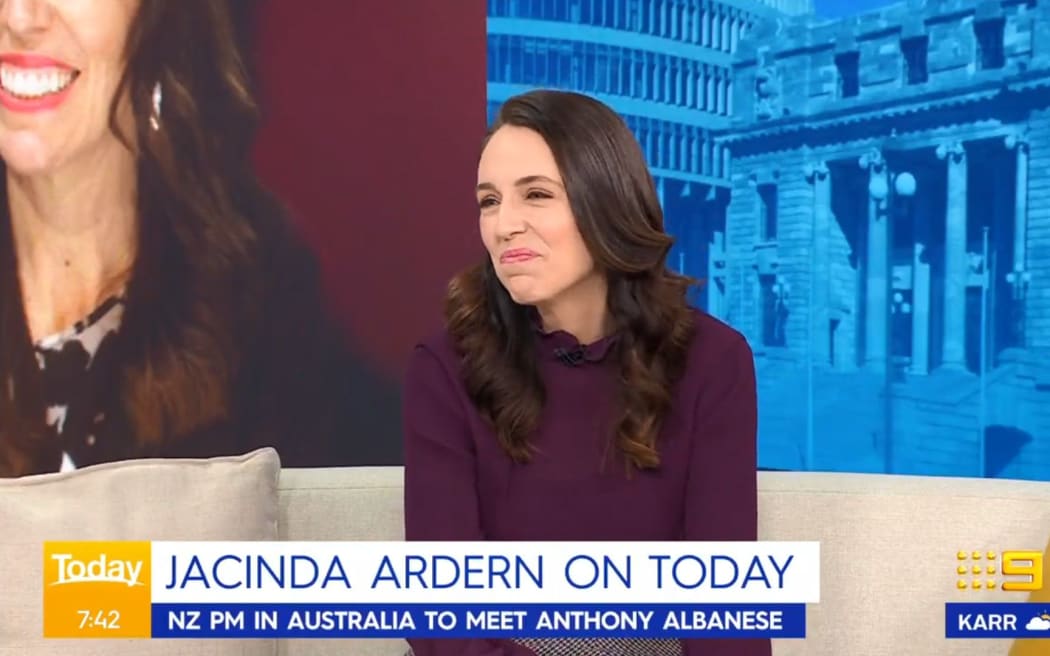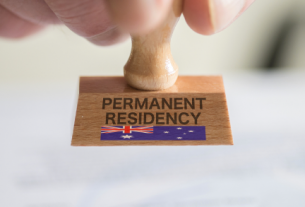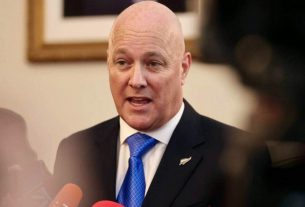【澳纽网编译】国家党公布了其计划,推出四个新的税收和削减公共服务开支,以资助146亿纽币的所得税削减,旨在帮助“被挤压的中产阶级”。
该计划——其中包括经通胀调整的所得税级,育儿补贴和增加为家庭工作(Working for family)的补贴-这意味着一些家庭每两周的收入将增加250纽币。
The plan – which includes inflation-adjusted income tax brackets, childcare subsidies and increases to Working for Families– means some households would be up to $250 better off per fortnight, leader Christopher Luxon said.
[xyz-ihs snippet=”In-article-ads”]为了筹集资金,国家党将实施外国买家税,移民税,堵塞税收漏洞,并结束商业建筑折旧税收优惠。
节省的开支将包括减少政府部门的开支,取消半价或免费的公共交通,取消劳工部最近延长了20小时的免费幼儿教育以及重新分配通过排放交易计划筹集的资金。
卢克森和财政发言人尼古拉·威利斯周三在国会举行的新闻发布会上公布了期待已久的方案。
卢克森说:“这个计划证实了一个国家政府可以做我们一直说过的事情,那就是把钱放进新西兰人的口袋里,作为一个谨慎、资金充足和平衡的税收计划的一部分。”
政策将于2024年7月生效。这对不同的人来说意味着什么:
- 平均收入(120,000纽币)的家庭有孩子在照看:每两周多出250纽币,其中约150纽币是托儿补贴。
- 无子女家庭平均收入:每两周高达100纽币
- 养老金夫妻:两周26纽币
- 全职工作者收入中位数($60,000):每两周$50
- 全职最低工资工人:每两周20纽币
国家党的税收政策刚刚发布,乍一看,它为筹集146亿纽币的税收计划似乎触及了所有的甜蜜之处。尼古拉·威利斯在长达一小时的新闻发布会上表现得平静、沉着,对所有细节了如指掌,在她的演讲中,她的领袖克里斯托弗·拉克森在她发表关键观点时笑了笑,并在整个演讲中表示热烈的赞同。
[xyz-ihs snippet=”In-article-ads”]以下是国家党提出的四个新的税收来源(同时承诺不会出现财政漏洞):
国家党将取消外国买家禁令——工党于2018年实施——并对价值不到200万纽币的房屋购买征收15%的税款(国家党的新闻稿称200万纽币以上,但这是不正确的)。财政发言人威利斯表示,这将每年产生7.4亿纽币的收入。
取消禁令是否会使新西兰人在我们过度供应的住房市场中与更多的外国买家竞争,正如工党所声称的那样,这是国家党必须应对的一个关键问题。
大卫·帕克本月表示,由于工党的禁令,全国范围内不到1%的房屋是由外国买家购买的。然而,这仅涵盖了现有的住房(所以他们仍然可以购买未来的住房),而且几乎没有证据表明禁令有助于降低住房市场的热度。外国买家在奥克兰的住房市场中起到了重要作用。根据帕克的说法,2018年6月底前三个月,在奥克兰市中心的销售中,他们占到了22.2%,在2018年3月底前三个月,在皇后镇占到了9.7%。他说,现在全国范围内的比例已经低于1%。
国家党将终止商业建筑折旧税收优惠,每年将产生约5.25亿纽币的收入。工党已经承诺这样做,以资助其取消对新鲜和冷冻水果和蔬菜征收货物和服务税的政策,所以不管怎样都会发生。在大流行期间,这一政策曾暂停,给商业房东带来了一些缓解,但这种缓解现在已经结束。
[xyz-ihs snippet=”GoogleADresponsive”]它还将向境外运营商征收在线赌博税——乍一看似乎很容易赢,但可能会有一些问题。
首先,不清楚如何执行这项政策。只有TAB和Lotto可以合法地向新西兰人宣传,但人们可以在海外的赌场网站和体育博彩网站上进行在线博彩。
这也是工党政府关注的问题。赛马部长基兰·麦肯特(Kieran McAnulty)在5月份宣布,内阁已经“原则上”达成协议,阻止新西兰人向海外博彩公司下注,但互联网新西兰警告说,使用技术阻止人们访问海外赌博网站不会有效。
国家党还将推出一项按用户付费的移民体系。尼古拉·威利斯被问及是否会阻止急需的移民(如护士、医生和教师)来这里,但她表示,她不认为这会,因为研究显示费用不是决定因素。她说,费用包括375纽币的学生签证、750纽币的雇主工作签证、700纽币的工作后签证和2750纽币的合作伙伴居留签证。与澳大利亚的费用相比,这些费用要便宜得多,降低了一半以上。
我们的新闻编辑部正在疯狂地工作,逐行审查政策,以了解这项政策将如何运作,以及它将如何影响您和您的家人,我们将在此博客上实时报道我们所发现的内容。
[xyz-ihs snippet=”googleAD300x100″]National’s $14.6bn tax plan: what we know, what we need to find out
Crikey. National’s tax policy just dropped, and at first blush its strategy to fund its $14.6 billion tax package appears to hit all the sweet spots. Nicola Willis was calm, measured and across all the details during the hour-long press conference, where her leader Christopher Luxon laughed as she made some of her key points during her address, and hummed his fervent agreement throughout.
Here are the four new revenue streams National has outlined, (while promising there will not be a fiscal hole):
National would roll back the foreign buyers ban – which Labour put in place in 2018 – and apply a 15% tax for purchases on houses worth less than $2million (a National press release said more than $2m but this was incorrect). Finance spokesperson Nicola Willis said this would generate $740 million a year.
Whether undoing the ban will have Kiwi’s competing with more foreign buyers in our over-cooked housing market, as Labour claims, is a key question National will have to contend with.
David Parker this month said fewer than 1% of houses nationwide were bought by foreign buyers as a result of Labour’s ban. However this only covers pre-existing homes (so they can still buy houses off the plans) and there is little evidence the ban helped cool down the housing market. Foreign buyers played a huge role in Auckland’s housing market, particularly. According to Parker, at the peak they made up 22.2% of sales in the three months ending June 2018 in central Auckland, and 9.7% in Queenstown in the three months ending March 2018. It was now down to under 1% nationally, he said.
National would end the commercial building depreciation tax break which would generate about $525m a year. Labour has already promised to do this in order to fund its policy to scrap goods and services tax off fresh and frozen fruit and vegetables, so it is happening either way. It was paused during the pandemic, giving commercial landlords a bit of relief, but that relief is now on its way out.
It would also introduce an online gambling tax for offshore operators – which seems like an easy win on first glance but may have a few fishhooks in it.
Firstly, it is not clear how it will be enforced. Only the TAB and Lotto can legally advertise to New Zealanders, but people can gamble online for example with overseas-based casino websites and sports betting sites.
It is also an issue the Labour Government has in its sights. Minister for Racing Kieran McAnulty announce in May that the Cabinet had reached an agreement “in principle” to prevent New Zealanders from placing bets with online bookies overseas, but InternetNZ warned using technology to block people from visiting overseas gambling websites won’t be effective.
National would also make a user-pays immigration system. Nicola Willis was asked whether this would deter any of the migrants with skills New Zealand desperately needs – nurses, doctors and teachers – from moving here but said she didn’t believe it would because research shows fees are not a deciding factor. Undertanding the process and having a clear pathway were more important she said. Fees would include $375 for a student visa, $750 for employer work visa, $700 for apost-work visa, and $2750 for a partner residence visa. These were substantially cheaper – by more than half – when compared with Australia’s fees.
Our newsrooms are now working frantically, going through the policy line by line to understand how this policy will work, and how it will effect you and your family and will be reporting what we find live here on the blog.
1,029 views





